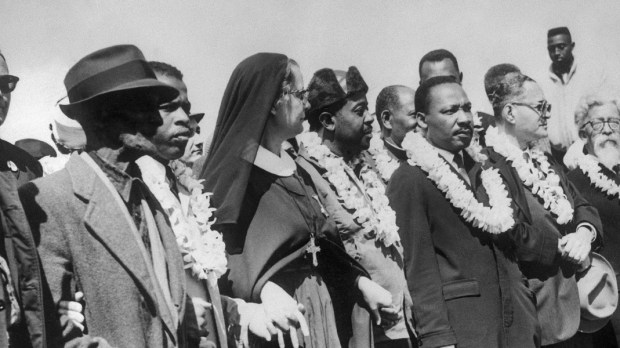It’s very useful, being white. Some doors open, and other doors don’t get closed. In public you enjoy a measure of anonymity and are not the subject of special attentions, except when you want to be. People you meet don’t spend an entire conversation calculating what they can and can’t say. Serious movies and television shows usually deal with problems you recognize.
You could say it’s a privilege being white — more accurately that you enjoy white privilege, in both senses of “enjoy”: in the older sense of “possess and benefit from” and the newer sense of “to take pleasure in.” It’s even a privilege that you don’t notice it, that your special place in the world feels natural.
White privilege is “a life-easing level of advantage that comes with just being Caucasian in America, no matter what your wealth, gender or any other status,” explains Christine Emba in theWashington Post. Emba, the editor of the newspaper’s “In Theory” weblog, goes on to explain the history of the term, the reaction against it, and its value in describing a reality that shapes our world and particularly the experience of our brothers and sisters of color.
It seems to me impossible to deny that it exists, but people do. A couple years ago I wrote an article for Ethika Poltika called Jeremiah and the Enlightened Racist*. It made a similar point to Emba’s, about the unconscious racism that many of us suffer, with reference to studies that had drawn this out.
In the comments and social media exchanges many people reacted as if I’d said something absurd or insulting, or even racist. Some declared that white people were the real victims, others dismissed the problem as natural or inevitable, or treated it as trivial, and a few claimed that black Americans or their culture were to blame. They would not admit that they themselves had any advantages.
It’s a parallel to other forms of socially conditioned cluelessness. There’s an old (possibly apocryphal) story that the New Yorker’s movie critic Pauline Kael asked, in genuine bafflement, how Richard Nixon could possibly have won the presidency, when no one she knew had voted for him. She lived in liberal Manhattan artsy circles, many of us live within a white skin. That has the same effect on what we see and what we don’t see about ourselves.
I had forgotten, until I was writing this, about something that happened many years ago. A friend and I were puttering around Boston. He was Hispanic, of mixed racial descent, brown-skinned with short very curly hair. And dressed noticeably better than I. I heard a fuss at the front of the store and walked down the aisle to see my friend being interrogated by a hostile clerk.
As I walked up, the clerk, an older man who may have been the owner, turned and politely asked me what I wanted, and I said I was going to ask my friend if he was ready to go. The man became instantly nice not only to me but to my friend. He didn’t even act embarrassed. It was if we had just walked in. My brown friend had (from his point of view) produced his credentials, had proved himself trustworthy — because a long-haired white kid in blue jeans, running shoes and a hooded sweatshirt was his friend.
There is much to be said about this subject, and much for Catholics serious about enacted charity to consider. It is difficult to know what we may do about it when prejudices run so deep, but white Catholics can start by seeing their white privilege as something they’ve been given, a possession that comes under the instruction that “to whom much is given, of him much will be required.”
It means among other things that we should say more because we have a better chance of being heard. We should risk more in speaking out, because we have more protection against reaction. We should be alert to expressions of racial prejudice, because some people might listen to us who will not listen to a black person.
Privilege is like money. We’re given the extra to spend on others. We’ve got it whether we like it or not. The question is what we do with it.
*(Disclosure: I wrote the “Jeremiah” piece before I had anything official to do with the work, but I’m now editorial director. While I’m at it, see also Religious Racism, Progressive Christianity and the Conservative Challenge by young African American writer Anthony Barr.)
David Mills, former executive editor of First Things, is a senior editor of The Stream, editorial director for Ethika Politika and columnist for several Catholic publications. His latest book is Discovering Mary. Follow him on Twitter @DavidMillsWrtng.

